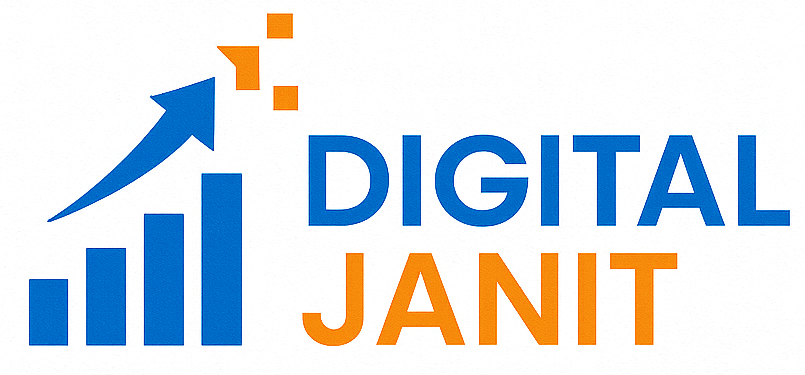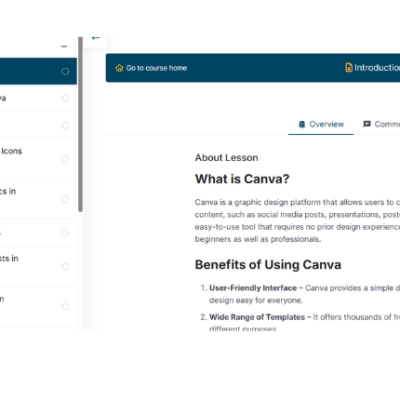Domain and Hosting Interview Questions & Answers
Domain and Hosting Interview Questions & Answers
Introduction to Domain and Hosting
When it comes to launching a website, understanding the roles of domains and hosting is crucial. Domain names are what people type into their browsers to access a website, and hosting is where the website’s files are stored. Whether you’re preparing for an interview or looking to brush up on the basics, here’s a detailed guide on domain and hosting-related questions, helping you navigate the most commonly asked questions.
Why Are Domain and Hosting Important for Websites?
Before diving into the interview questions, it’s important to understand why domain and hosting are so critical. The domain name is your website’s address, making it accessible to users on the internet. On the other hand, hosting provides the server space for all your website files, images, and databases. Together, these two components make your website functional and visible on the web.
Top Domain and Hosting Interview Questions
What is a domain name, and how does it work?
A domain name is essentially your website’s address on the internet. It’s what users type in the browser’s search bar to reach your website. The domain works through a system of domain name servers (DNS), which translate the domain into an IP address that the server understands. In short, the domain serves as the user-friendly identifier of your site on the web.
What is web hosting, and how does it function?
Web hosting is the that stores your website’s data (text, images, videos, etc.) on a server, making it accessible to users. Hosting providers manage the infrastructure (servers) and offer resources like storage space, bandwidth, and security features. When someone visits your website, they access the data stored on these servers.
Explain the difference between shared hosting and dedicated hosting.
Shared hosting is when multiple websites share the same server resources, which makes it a more affordable option, but can sometimes result in slower performance due to shared resources. Dedicated hosting, on the other hand, provides an entire server for a single website, offering better performance, enhanced security, and greater control. While shared hosting is cost-effective, dedicated hosting is typically chosen by businesses that need higher performance and custom configurations.
What is a DNS (Domain Name System)?
The Domain Name System (DNS) is like the internet’s phonebook. It translates user-friendly domain names into machine-readable IP addresses. Every time you visit a website, DNS servers help find the server that hosts the site by resolving the domain into an IP address.
Can you explain the concept of domain forwarding?
Domain forwarding is a process where one domain redirects users to another domain. For example, if you have multiple domains, you can set up forwarding so that visitors to the .net domain are automatically directed to the .com domain. It’s useful for managing multiple domains or consolidating web traffic to a primary domain.
What are the different types of hosting available?
There are several types of hosting s available, including:
- Shared Hosting: Multiple websites share the same server.
- VPS (Virtual Private Server) Hosting: A middle ground between shared and dedicated hosting, offering more resources and isolation.
- Dedicated Hosting: A dedicated server just for your website.
- Cloud Hosting: A network of servers hosting your site, providing scalability and reliability.
- Managed Hosting: Hosting where the provider takes care of server management and maintenance.
What is an IP address, and how is it related to a domain name?
An IP address is a unique identifier assigned to every device or server connected to the Internet. It’s the address that machines use to communicate with each other. While human users use domain names, the DNS system maps these domain names to IP addresses so that browsers can find the correct server to display the website.
What is SSL, and why is it important for websites?
SSL (Secure Socket Layer) is a security protocol that encrypts the connection between a user’s browser and a website. This ensures that data transferred between them is secure and cannot be intercepted by malicious actors. SSL is particularly important for e-commerce sites or any site that handles sensitive information, as it protects user privacy and enhances trustworthiness.
What are nameservers in hosting?
Nameservers are specialized servers that manage the mapping of domain names to IP addresses. When you register a domain, you are typically provided with nameservers that help point your domain to the correct web host’s server, ensuring that users can access your site.
Can you explain what bandwidth is in hosting?
Bandwidth is the amount of data that can be transferred to and from your website within a specific period. It’s essentially the traffic capacity of your hosting . Higher bandwidth means more visitors can access your site at the same time without slowing down performance.
Best Practices for Choosing Domain and Hosting Providers
Researching and Comparing Providers
When choosing a domain and hosting provider, thorough research is essential. Compare different s, read reviews, and understand their pricing and features. Consider the scalability of their offerings to ensure they grow with your website.
Factors to Consider: Cost, Features, and Support
Look for a hosting provider that offers a balance between cost, features, and customer support. Sometimes, cheaper options may come with limited resources or poor customer , which can be detrimental in the long run. Be sure the provider offers enough bandwidth, storage, and security for your needs.
Ensure Scalability for Future Growth
Make sure the hosting provider can accommodate your website as it grows. You might start small, but you need a hosting provider that offers easy upgrades or more advanced hosting options when your site expands.
The Importance of Reliable Customer Support
Customer support is critical when it comes to hosting s. Websites often experience downtime or technical issues, and having 24/7 support can make a huge difference in resolving these problems promptly.
Conclusion
Domain names and hosting are foundational elements of running a website. Understanding the basics and nuances of domain registration, hosting types, and best practices for choosing providers can set you up for success, both in your career and for your website’s performance. Whether you’re preparing for a job interview or working on your own site, these concepts will guide you in making informed decisions.







































































